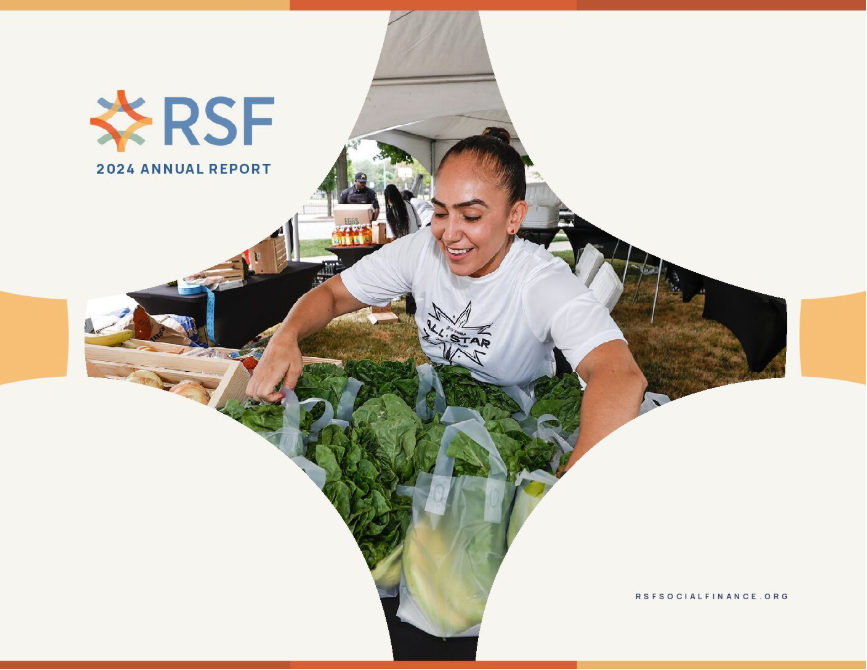How a Collective of Family Farms Changed a State’s Meat Industry
Arkansas is rich territory for livestock agriculture. It’s home to one of the country’s four major meat-packers—a multinational giant that sells billions of dollars of meat products a year. Contract farmers who work for them, however, often earn poverty-level wages, and their livestock fares no better. Chickens and turkeys, for example, are crammed into houses the size of a football field with less than a square foot of space per bird. Disease runs rampant and antibiotic use is high.

In the midst of this environment is Grass Roots Farmers’ Cooperative, a pioneering collective of family farms practicing ethical animal husbandry and regenerative agriculture. Its members allow their cattle to graze in pastures and their chickens to roam freely, giving their animals a quality of life that yields high-quality meats. By banding together, the farmers are creating a market for their beef, pork, and poultry that enables them to earn livable incomes. And they’ve made it their mission to help new farmers do the same by providing them with training, equipment, and seed money in partnership with Heifer USA.
“Grass Roots has the potential to shift a lot of things that are wrong with the food system,” says Meredith Storton, senior lending associate for RSF Social Finance, which provided the co-op with a line of credit last year. “There are a lot of farmers who don’t make a sustainable income, so helping them get to a financially viable place is huge.”
Finding Muses in Virginia and Nepal
Grass Roots grew out of the struggles that founder Cody Hopkins and other small-scale farmers faced: there was no infrastructure for farms their size that would get their products from farm to consumer. A former physics teacher, Hopkins and his wife, Andrea Todt, started Falling Sky Farm in Marshall, Arkansas, 10 years ago. He was inspired by the farming models in Michael Pollan’s The Omnivore’s Dilemma, in particular that of Joel Salatin, a Virginia farmer who practices holistic animal husbandry.

At first, Hopkins and Todt tried to do everything themselves: raising livestock, processing and packaging the meat, distribution, and attracting customers. It was overwhelming.
“Getting our product from farm to market was a real nightmare,” Hopkins recalls. “The overhead was eating our lunch.”
He soon discovered other farmers in his rural and largely poor community who were struggling with similar issues. In 2013, Heifer USA, a nonprofit working to revive local food systems in the state, took notice. Acting on the mantra of “think globally, act locally,” Heifer invited Hopkins and other farmers from the Arkansas Delta and Appalachia on a trip to Nepal.

“We got to see women-led farmer cooperatives,” says Hopkins. “That drove home the fact that we needed to find a way to do this.” The trip sparked the creation of Grass Roots Farmers’ Cooperative in 2014. There were six farms in the founding group, and with training and start-up support from Heifer, the co-op now consists of 15 farms and has sales of roughly $2 million a year. (To honor the Nepalese farmers who inspired the co-op, it donated 10 percent of September e-commerce sales to Heifer’s relief efforts for September’s devastating floods in Nepal.)
Beyond Food Labels: Blockchain
Now the co-op handles processing, packaging, and selling meats online and to distributors such as U.S. Wellness Meats and the Golden Gate Meat Company.
Grass Roots has the potential to shift a lot of things wrong with the food system now.
Grass Roots caters to conscientious eaters who want to know exactly where their food comes from. For total transparency, Grass Roots became the first meat company in the U.S. to embrace blockchain technology to reveal the supply chain from farm to the consumer. This allows the co-op to store detailed information about its products on a secure distributed database, so consumers can learn who raised and processed the animal, how much pasture it had access to, what it ate, how much it cost to raise, and more by scanning a QR code on the packaging.
Meaty Collateral
Grass Roots’ humane standards made it difficult to find a meat processing facility that met its needs. After several candidates did subpar work, resulting in lost customers, Grass Roots partnered with another company to establish Natural State Processing. The investment, however, cut into cash reserves and restricted the co-op’s ability to cover operating costs. Grass Roots needed a loan.
The first few lenders they approached rebuffed the co-op. “We’re a weird business model,” says Hopkins. “Your run-of-the-mill bank wasn’t going to take the time to understand our business model.” He approached RSF for financing in 2015, three years after first meeting a staff member at an event.
To secure the loan, the only asset Grass Roots had was fresh meat. Most lenders refuse perishable collateral, but RSF was still intrigued. Could it work? To find out, RSF provided the co-op with a grant from its Soil Health Capital Collaborative so that it could hire a professional auditor specializing in food processing to assess the inventory and offer guidance.
Farmers aren’t rich. But with RSF’s help, we’re knocking down barriers to entry and making it easier for existing farms to expand.
Satisfied by the audit results, RSF issued a two-part financial package to Grass Roots in 2016: a loan to cover its investment in the processing plant and a line of credit to support co-op farmers with operating needs if they have a difficult season. The co-op deducts the loan from the farmer’s profits at year’s end. RSF sourced the funding from its Food System Transformation Fund and Soil Health Capital Collaborative.
“RSF was extremely flexible in how they structured our loans,” says Hopkins. “They really understood the social and environmental impact we were having and worked hard to craft a deal that would allow us to be successful.”
Improving land, livestock, and livelihoods
Grass Roots helps train new farmers and provides seed money for infrastructure, and since its founding the co-op has grown from managing 400 to 1,400 acres—all farmed using regenerative practices. Its farmers move their livestock every day to avoid over-grazing, and allow plenty of time for the soil to restore itself and mineral-rich grasses to grow. This process is key in helping to sequester carbon in the soil.

To date, Grass Roots has added 27 jobs to the local economy and boosted farmers’ income. For example, while a conventional chicken farmer is often paid only a few cents a pound, a Grass Roots farmer makes $2 a pound. The RSF loans will allow the co-op to expand and help its farmers grow; next up is increasing the market for Grass Roots’ meats (using the whole animal, selling offal and items like pork lard) and inviting more farmers to join the co-op. One day, members hope the co-op will include as many as 100 farms throughout the U.S.
“Farmers aren’t rich,” says Hopkins. “But with RSF’s help, we’re knocking down barriers to entry and making it easier for existing farms to expand.”


